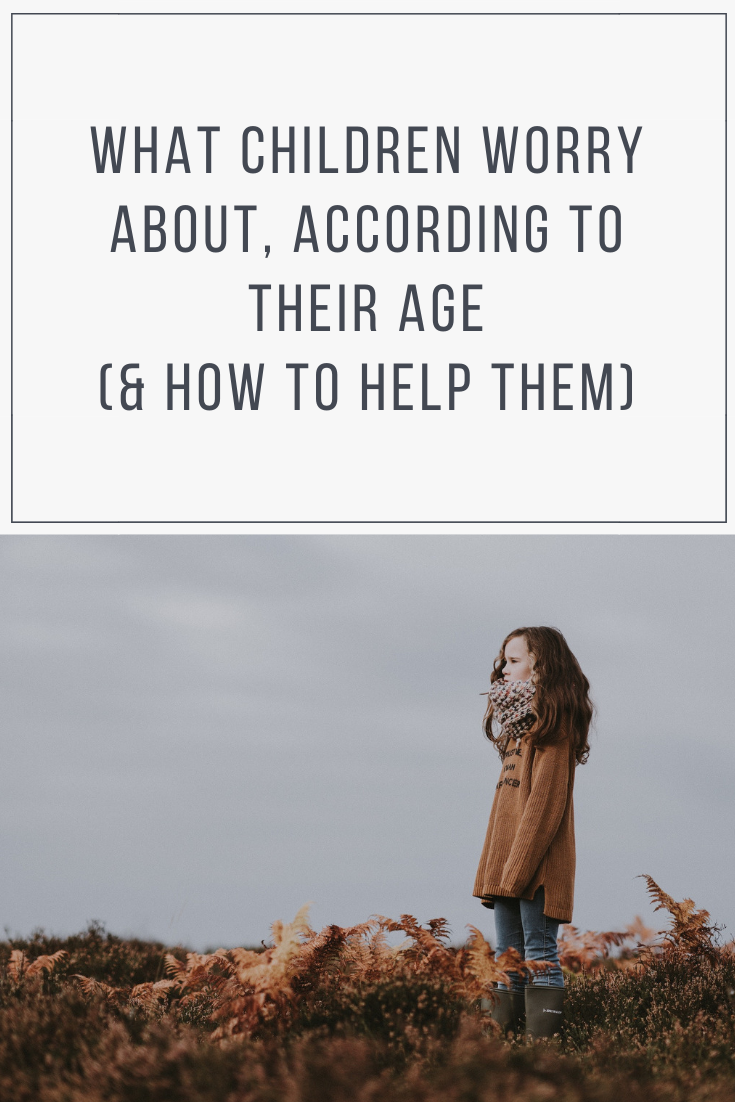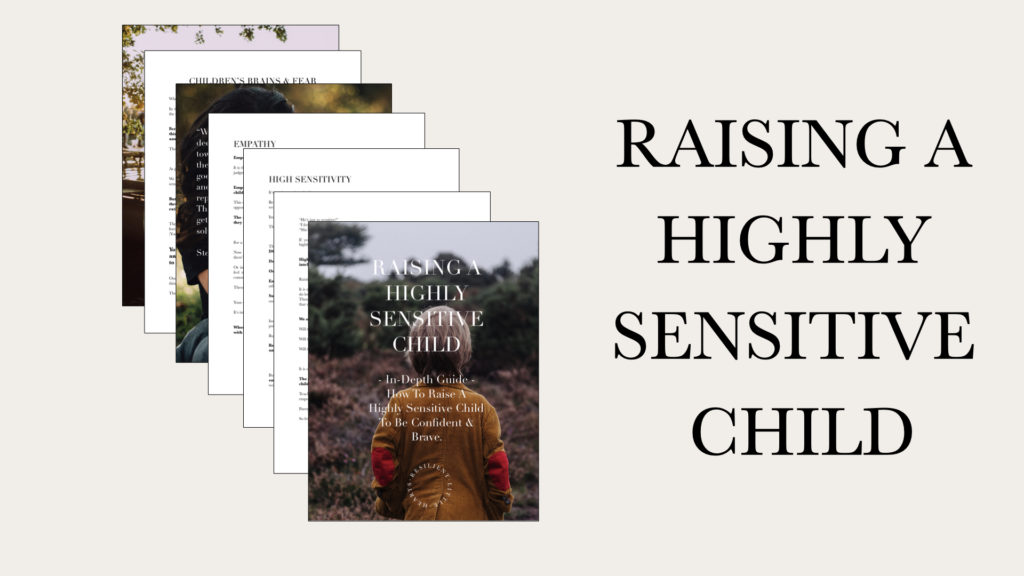What Children Worry About, According To Their Age (& How To Help Them)
In an age of increased mental health awareness (which is very positive), we can sometimes forget that dealing with fear and anxiety is a normal part of life (even when we don’t have mental health issues).
When you understand the “normal” fears for each developmental age, it helps you to support your child more confidently; & also helps you to know if it’s time to reach out for professional help.
SIGNS OF ANXIETY AND FEAR IN CHILDREN
Signs of fear and anxiety manifest differently in children than they do for adults.
Some signs may include:
- Saying that they are feeling scared or worried
- Avoidance of the activity, person or circumstance that they’re scared about
- Resistant behavior (almost bordering on bad behavior) to avoid what they’re scared of
- Stomach aches
- Nightmares
- Pulling back from previously close relationships
- Retreating into their room all the time, without talking to others
- Biting their nails
- Sleep disturbances
- Getting sick regularly (sometimes this can be their body shutting down because they are so stressed all the time)
- Obsessing over controlling the situation
- Other obsessive behavior: hoarding, switching lights on and off, washing hands compulsively
- Emotional meltdowns
- Aggressive behavior (even bordering on violent)
- Agitated
- Inattention, distracted, poor focus
- Difficulties in transitions
- Having very high personal standards in school work or behavior
- Development of ritual-like behavior
- Overly attached to the parent
The following is a list of normal fears at each developmental level & some suggestions on how to give your child a sense of security during this phase.
If you child is struggling with higher levels of fear than you think is “normal” you may be raising a child with a highly sensitive personality temperament. Highly sensitive individuals struggle with anxious thinking more than the general population.
We have a free guide to help you raise a highly sensitive child to overcome their fears, CLICK HERE
WHAT CHILDREN WORRY ABOUT, ACCORDING TO THEIR AGE
Infancy – 2 years old
This stage of development is marked by an infant’s desire to positively attach to their primary caregiver. In some ways this is the most demanding stage of parenting, as your child wants to be around you (or at least see you!) 24/7.
Developmentally, infants think that if they can’t see something, then it doesn’t exist anymore (this is why the game of peek-a-boo is so fun!). This is also why most of the fears at this age are centered around the separation from the primary caregiver.
- Fear of being away from their parent
- Fear of strangers
- Fear of sleeping alone
- Separation anxiety
TIPS FOR PARENTS: Almost all fears at this age can be calmed simply by the physical & empathetic presence of the parent. You don’t need to try to rationalize or explain too much, just give them lots of hugs & physical attention.
2-4 years old
At this stage of development, your child begins to realize that they are separate from you & they want to explore the world.
It is a time of testing boundaries, but also when separation anxiety peaks.
Children at this age do not have the language skills to communicate their feelings, so big feelings quickly turn into emotional meltdowns.
Also at this age, neurologically children cannot understand the difference between imagined or real things. This is why experiences of Santa, the Easter Bunny or the Tooth Fairy are so fun at this age, but also why they’re very often scared of “pretend” things.
- Fear of going to the potty (falling in, things coming out, or the flushing sound)
- Fear of the dark or shadows
- Fear of loud noises
- Fear of sleeping alone
- Fear of animals (particularly if they are loud or not calm)
- Fear of strangers or getting lost
- Fear of being separated from a parent
- Fear of television shows – even ‘age appropriate’ ones with scary themes
- Fear of monsters under their bed (or other pretend characters)
- Fear of the weather (such as rain or thunder)
TIPS FOR PARENTS: Because children don’t understand the difference between real & imagined, it’s very important to think about what books, stories or tv shows they are being exposed to at this age. We can sometimes unknowingly create fears for our child simply from exposing them to shows or characters that are too scary.
The frequent emotional meltdowns and tantrums at this stage (requiring a lot of patience from us!) can often be a sign of fear or anxiety. By leading with empathy, hugs & reassurance you can bring a sense of calm, rather than trying to argue with or even ‘discipline’ the emotions.
As language is still limited, you can begin “naming” certain emotions with your child such as “happy”, “sad”, “angry”, or “scared”. Teaching them to name their emotions will significantly increase their emotional intelligence in the future.
5-7 years old
At this stage of development, children are beginning to understand the difference between what is real and pretend. They are also able to understand language and concepts.
Even though they are beginning to explore friendships with their peer group, they are still primarily attached to their parents & family.
- Fear of the dark
- Fear of fire or natural disasters
- Fear of “bad guys”
- Fear of television shows with scary themes
- Fear of being long-term or permanently separated from a parent
- Fear of teachers or coaches who yell or show disappointment towards them
- Fear of going to the doctor or dentist
- Fear of peer rejection
TIPS FOR PARENTS: Even though your child may be beginning to understand the difference between pretend and real, still be mindful about what books & shows they are exposed too. It’s still not a stage to expose them to ‘real world issues’.
Your child now has the ability to have conversations with you about their feelings, so take time to check in on how they are feeling. This is the age to begin regular & open conversations about emotions. Talk openly about their fears & how you can overcome them.
8-11 years old
At this stage of development, your child’s peer group is establishing as an additional influence in their life. Many of the fears at this stage begin to shift towards social fears.
At this stage you will also find that you are unable to “control” everything that your child is exposed too. As their exposure increases, their fears begin to become about ‘real life’ dangers.
- Fear of bad guys and ghosts
- Fear of being at home alone
- Fear of dying
- Fear of sickness or vomiting at school
- Fear of school failure
- Fear of peer rejection (not fitting in or being seen as ‘cool’)
- Fear of ‘real life’ dangers such as natural disasters or world issues
TIPS FOR PARENTS:
At this stage as they are exposed to real life issues outside of the house, it is important to have open conversations about what’s bothering them & allow them to share their feelings without shame.
As they share about their feelings, empathetically connect with them & share your thoughts.
Hearing their parents views on real-life issues can give children a deep sense of stability at this stage that can counter-act fear. Share what you used to be afraid of at their age, & how you dealt with it.
As you establish yourself as a ‘safe & trustworthy relationship’ at this transition stage before adolescence, you will set the foundation for a future relationship where they feel comfortable sharing their feelings with you.
12-18 years old
At this stage of development, everything is changing for your child. Adolescence is one of the most emotionally unstable times they will experience in their life.
There is a significant change of hormones and brain chemistry, & they are working through the internal instability of defining their identity and place in the world.
This stage is typically marked by high emotions & lots of ‘boundary testing’ as your child works their way towards adulthood. Almost all their fears are related to social situations & global issues.
It’s important to understand that your teenager is not a “mini adult” & shouldn’t be treated that way. Neurologically their brain isn’t fully developed until young adulthood.
- Fear of being unsafe
- Fear of sickness or vomiting at school
- Fear of failure in school or sports
- Fear of school presentations
- Fear of how they look in front of others
- Fear of romantic rejection
- Fear of violence & global issues
- Fear of life’s purpose & becoming an adult.
TIPS FOR PARENTS:
Similar to the toddler stage of development, be aware that not every emotional outburst from your teenager needs to be met with ‘boundaries’. Many times they are overwhelmed by so many emotions that they cannot neurologically process, so they ‘lash out’.
Where possible, keep an open conversation with your adolescent, particularly about their feelings.
Even though you may feel that they are pushing away from you in order to gain independence, by maintaining a stable presence in their life, you give them a safe place to retreat.
Having a safe person that they can talk openly about their fears with, is one of the best ways to help adolescents process their emotions.
Another way to help your adolescent process their fears, is to encourage them to journal their feelings. Writing out emotions has proven to be one of the healthiest ways of processing them.
Be aware that you may not always know everything that is happening in their world, that could be causing them anxiety. Lead with empathy.
Because most of an adolescents fears are related to their social & school situation, if you find that your teenager is really not coping, take them away from the environment for 1-2 days. Similar to us, sometimes a break away from the pressure can do wonders for their emotional stability.
Most children are able to positively deal with their fears through the emotional support of their parent.
Some children need additional support. If you are looking for additional support to confidently support your child, we have some guides for parents –
For our free guide on how to help your highly sensitive child overcome fear, CLICK HERE
For our in-depth, e-book BRAVE on how to help your child overcome their fears CLICK HERE
NOTE: If you feel that your child’s fears are extreme; they are significantly interfering with your child’s ability to engage in normal life (such as going to school), or they are having consistent physical symptoms, please talk with your doctor or mental health professional.












